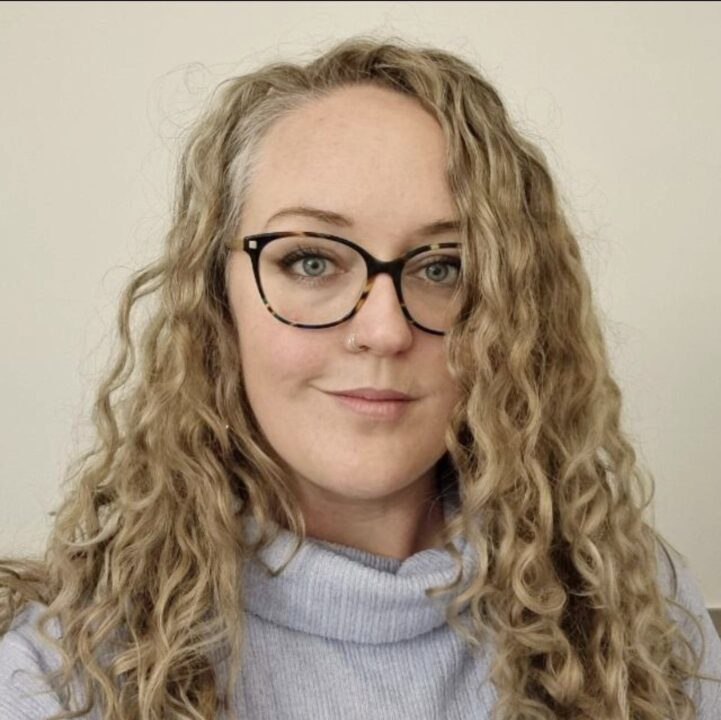Recap: 6th Annual Emerging Frontiers in Oncology Summit
This year’s 6th Annual Emerging Frontiers in Oncology Summit, co-hosted and organized by Lumanity with the founder of Emerging Frontiers, Uciane Scarlett, took place at the Broad Institute in Cambridge, MA on March 21, 2024.
The theme centered around “The Future of Precision Oncology: Striking the Balance Between Complexity and Capacity” which explored thought-provoking dimensions surrounding the possibilities and challenges inherent in shaping the future of precision oncology. Through three key focal points—Research, Innovation, and People—we unraveled recent progress and ongoing efforts, contemplating the necessity and manageability of precision oncology and its complexity, and identified the talent and collaboration requirements to propel precision oncology forward. Read about some of the highlights of the event below.
- Industry Cycles
- After over 25 years of precision oncology, the “low-hanging fruit” is largely picked, and the emerging frontier is now in identifying patterns of resistance and developing approaches to delay or address resistance to targeted therapies.
- The future of cancer treatment will no doubt involve new generations of precision approaches, and the event’s participants discussed what this may look like and what it will take.
- Precision oncology may not be favored currently—one of our panelists went so far as to say it’s become a “dirty word” among many pharma and investor stakeholders—but precision oncology has been in disfavor before and has risen again with new biological and technological advances.
2. Data, data, data
As discussed in the Research Fireside Chat, advancing precision oncology is a multi-layered problem, and we need to approach it with multi-pronged approaches.
- There is a need to improve breadth and quality of real-world data through clinico-genomic platforms by leveraging platforms like Project GENIE as clinical trials only capture a small portion of a patient’s journey, while also continuing to promote diversity of representation and utilizing multi-omic approaches to deepen our understanding of cancer biology and treatment responses.
- Importantly, initiatives to collect complex data do not imply that those complex methodologies need to be scaled and used broadly. This would be highly impractical and would exacerbate disparities in care. Rather, the point is that sometimes we need the multi-omic, “kitchen sink” approach to find and validate which simple marker(s) can be used broadly. We sometimes need to go deep before going broad.
3. Innovation on both advanced biomarkers and advanced therapeutics
As discussed in the Innovation Bridge and Innovation Debate Panel portions of the event, there is not and will not be a one-size-fits-all way to treat cancer.
- Sophisticated diagnostic and biomarker signatures hold promise in identifying patient subgroups for intervention yet face challenges like high costs and limited adoption- particularly in community settings. Innovative assays, while advanced, may be expensive and complex to interpret. Directly linking diagnostics to treatment decisions is crucial for acceptance. Additionally, advancing biomarkers is vital for certain treatment breakthroughs, particularly in areas like next-generation immunotherapy, where improved immune phenotyping is necessary for understanding response and resistance factors.
- Despite the existence of well-established oncogenic drivers, there’s a pressing need for novel advanced therapeutics. For druggable targets, there remains ample opportunity to enhance therapeutic efficacy, particularly in addressing resistance mechanisms.
- However, with advanced therapeutic modalities, there is also much that can be done with simpler markers. Indeed, there are well known genetic alterations that are found in a large percentage of human cancers, such as TP53, c-MYC, and KRAS (non-G12C) mutations. Advanced therapeutic approaches that make these “undruggable” targets “druggable” could have major clinical benefit without novel biomarker innovation.
- There may also be ways of approaching precision oncology that do not require biomarker testing at all. For example, we may guide treatment using empirical testing using cell-based “avatar” systems.
4. Going beyond technical innovation: shifting commercial models
The Innovation Panel also discussed major barriers to advancing precision oncology that will require reforms in commercial models and payment systems.
- The incentives for diagnostics development are significantly smaller than compared to therapeutics, leading to misalignment, and hindering investment in critical diagnostic innovations essential for future therapeutic breakthroughs. New ways to structure payment for testing and reward innovators may therefore be needed from both healthcare systems and industry.
- Market fragmentation threatens the return on investment for novel therapies, which may be funneled into highly segmented or niche markets. One potential solution discussed by the panel was to develop an “aggregator” model where commercialization is focused at the portfolio level rather than the product level. This may require that novel biomarkers greatly de-risk and lower development costs for the therapeutics, perhaps even enabling re-positioning of existing mechanisms/products.
5. Biotech operational models may also need to shift
- The job market has softened, and it is easier again to recruit and retain scientific talent in the current climate, but senior leadership is always difficult to find.
- As biotech companies grow, there’s often an imbalance in workload distribution among various roles, with some overwhelmed while others are underutilized. This can lead to challenges such as excessive cash burn and difficulties in retaining talent. One potential solution to address this issue is fractional staffing, where specialized professionals are brought in on a part-time or project basis to efficiently manage workload fluctuations and optimize resource allocation.
- For the types of innovations required for the future of precision oncology, certain skills and expertise are needed that can be difficult to acquire. Computational biology is critical for innovative biomarker development and AI-assisted drug discovery platforms, but individuals with the computational expertise may lack the biology depth and vice versa. Improved mentoring and training models may be essential to address these gaps, especially considering the scarcity of ideal candidates within the talent pool. Cutting-edge medicinal chemistry continues to be vital, and with much of the industry’s capabilities outsourced overseas, we may be looking at challenges to find qualified senior staff with expertise in the discipline.
6. Setting a bold vision, going beyond low-hanging fruit
As discussed during the People Panel, most innovations in biopharma today spring from small biotech, but the biotech model itself presents challenges.
It is evident that the current short-term focused funding cycles pose a significant barrier to achieving the paradigm-changing innovation required in the field. While incremental progress has been made, the accessible avenues for innovation are rapidly dwindling, necessitating a new approach. Innovation tends to be concentrated in centers of excellence, underscoring the pressing need for equity and access to ensure that the benefits of advancements reach all patients. Moving forward, our collective focus must be set on fostering a bold vision that drives transformation, rather than settling for incremental innovations. It is only through such concerted efforts that we can truly realize the full potential of precision oncology and ensure that innovative solutions benefit a wider spectrum of patients.
Speakers and Moderators included Ben Auspitz, Partner, Forge LSP, Francesca Barone, CSO, Candel Tx, Detlev Biniszkiewicz, Managing Director, MPM BioImpact, Jeffrey Bockman, Expert Advisor and EVP, Oncology, Lumanity, Dennis Chang, Managing Director, Lumanity, Kapil Dhingra, Managing Member, KAPital Consulting LLC, Keith Flaherty, Professor, MGH, Co-Founder, Loxo, Scorpion Tx, Prashant Girinath, Partner, Greenberg Traurig, Joanne Lager, Chief Medical Officer, NiKang Tx, Anthony Letai, Professor, Harvard Medical School, Dana Farber Cancer Institute, Melissa McCracken, Partner, Nextech Invest, Catherine Sabatos-Peyton, CEO, Larkspur Biosciences, Uciane Scarlett, Principal, MPM BioImpact, Frank Stegmeier, CSO Partner, Curie.Bio, Shawn Sweeney, Senior Director, AACR Project GENIE Coordinating Center, Luke Timmerman, Founder & Editor, Timmerman Report
Are you looking for guidance in the oncology space? Our Oncology Center of Excellence provides you with broad and deep oncology experience-driven strategic guidance and insights to provide actionable decisions and solutions to de-risk and optimize development of therapies to improve the lives of patients who are impacted by cancer. Contact us for more information.
Download the Innovation Bridge presentation
"*" indicates required fields










